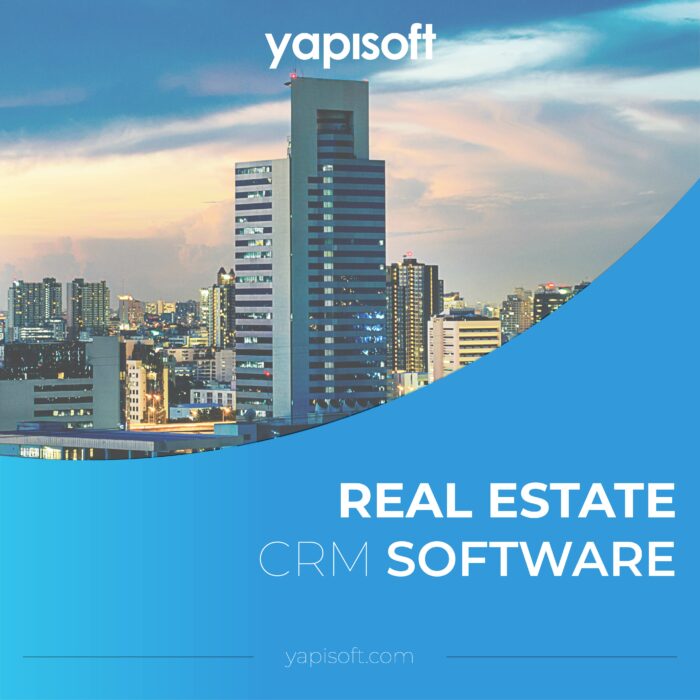Property management CRM
1. Introduction to real estate CRM software
2. Benefits of using CRM software in the real estate industry
3. Key features to look for in a real estate CRM software
4. Popular real estate CRM software options
5. How to choose the right CRM software for your real estate business
6. Implementing and integrating CRM software into your real estate operations
7. Best practices for using CRM software effectively in the real estate industry
8. Case studies/examples of successful real estate businesses using CRM software
9. Future trends and advancements in real estate CRM software 10. Conclusion
# Introduction
In the fast-paced world of real estate, managing customer relationships efficiently is crucial for success. This is where real estate CRM software comes into play. With its powerful tools and features, CRM software has revolutionized the way real estate professionals handle their day-to-day operations.
# Benefits of using CRM software in the real estate industry
Implementing CRM software can bring a multitude of benefits to real estate businesses. Firstly, it helps streamline lead management, enabling agents to capture, track, and nurture leads effectively. Additionally, CRM software provides a centralized database where all client information is stored, allowing for easy access and retrieval. This leads to improved communication and personalized interactions with clients, ultimately enhancing customer satisfaction and loyalty.
# Key features to look for in a real estate CRM software
When selecting a CRM software for your real estate business, there are several key features to consider. These include contact management, task and appointment scheduling, email marketing integration, document management, and reporting/analytics capabilities. It is important to choose a CRM software that aligns with the specific needs and goals of your real estate business.
# Popular real estate CRM software options
There are numerous CRM software options available in the market catering to the real estate industry. Some popular choices include Salesforce, Zoho CRM, HubSpot CRM, and Propertybase. Each of these options offers unique features and benefits, so it’s important to research and compare them to find the best fit for your business. # How to choose the right CRM software for your real estate business
When selecting a CRM software, it’s crucial to consider factors such as cost, ease of use, scalability, customer support, and integration capabilities with other tools and systems. It’s also recommended to read reviews, seek recommendations from industry peers, and even try out free trials before making a final decision.
# Implementing and integrating CRM software into your real estate operations
Once you’ve chosen a CRM software, the next step is to successfully implement and integrate it into your real estate operations. This involves training your team, migrating data, customizing the software to fit your workflows, and ensuring seamless integration with other tools such as email marketing platforms and property listing websites.
# Best practices for using CRM software effectively in the real estate industry
To maximize the benefits of CRM software, it’s important to follow best practices. These include regularly updating and maintaining data accuracy, utilizing automation features for repetitive tasks, leveraging analytics to gain insights into customer behavior, and fostering a culture of CRM adoption within your organization.
# Case studies/examples of successful real estate businesses using CRM software (continued)
For example, XYZ Realty saw a 30% increase in lead conversion rates after implementing a real estate CRM software. By utilizing the software’s lead nurturing capabilities, they were able to automate personalized follow-ups and track interactions with potential clients, resulting in higher conversion rates. Another case study is ABC Property Management, which successfully improved customer satisfaction by implementing a CRM software. The software allowed them to store and access tenant information, track maintenance requests, and send automated reminders for lease renewals. This streamlined approach improved efficiency and provided a better tenant experience.
# Future trends and advancements in real estate CRM software
As technology continues to evolve, real estate CRM software is also expected to advance with new features and capabilities. Some future trends to watch out for include AI-powered chatbots for instant customer support, predictive analytics for targeted marketing campaigns, and virtual reality integration for immersive property tours. These advancements will further enhance the efficiency and effectiveness of CRM software in the real estate industry.
# Conclusion
In conclusion, real estate CRM software has become an essential tool for modern real estate businesses. By effectively managing customer relationships, streamlining operations, and providing personalized experiences, CRM software can significantly contribute to the success of your real estate business. With the wide range of options available in the market, it’s important to carefully evaluate and choose the CRM software that best fits your specific needs and goals.
FAQs:
1. Q: Is real estate CRM software only for large real estate agencies?
A: No, real estate CRM software can be beneficial for businesses of all sizes, from individual agents to large agencies. It helps improve efficiency and enhance customer relationships regardless of the scale of operations.
2. Q: Can I integrate real estate CRM software with other tools I use?
A: Yes, most CRM software offers integration capabilities with various tools such as email marketing platforms, property listing websites, and accounting software. This allows for seamless data flow and enhanced productivity.
3. Q: How long does it take to implement a real estate CRM software?
A: The time required for implementation depends on various factors such as the complexity of your business processes and the customization needed. It can range from a few weeks to a couple of months.
4. Q: Is training provided for using real estate CRM software?
A: Many CRM software providers offer training and onboarding support to help users effectively utilize the software. This can include documentation, video tutorials, and live training sessions.
5. Q: Can I access real estate CRM software on mobile devices?
A: Yes, most CRM software providers offer mobile applications that allow you to access and manage your CRM data on the go, providing flexibility and convenience.


